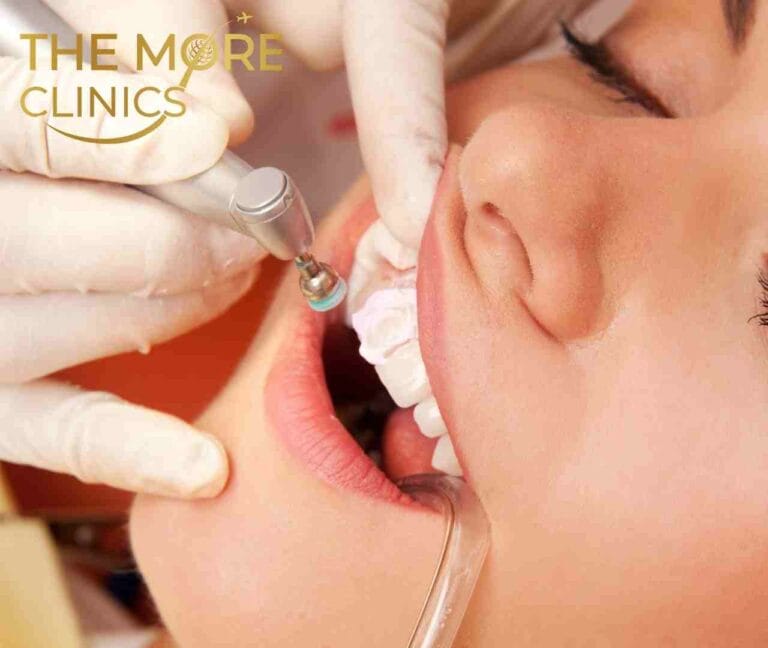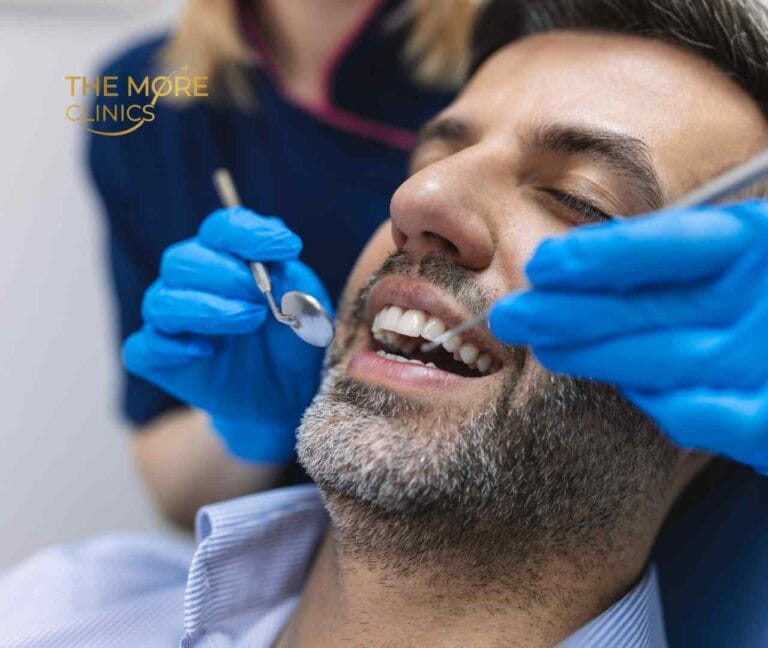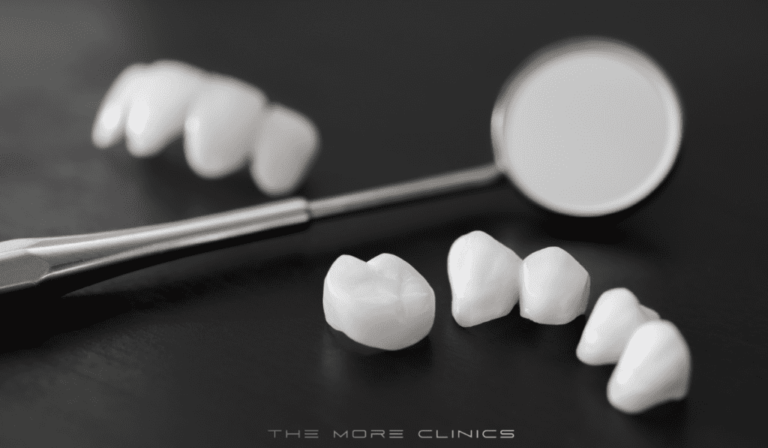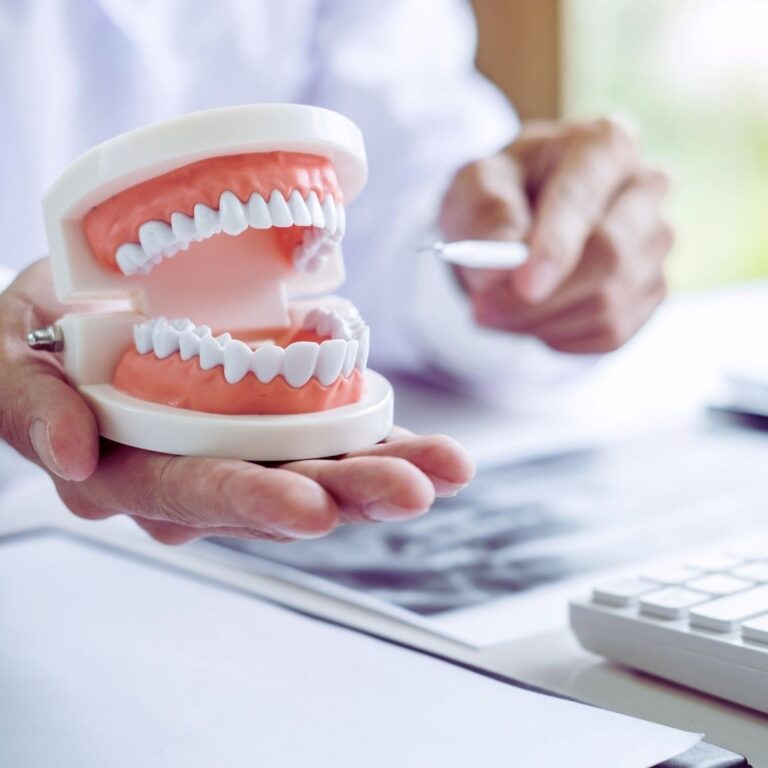Gingivitis: The Early Stage of Periodontal Disease
Gingivitis, the earliest stage of periodontal disease, is a common and treatable oral health issue that affects millions of people. While it may seem like a minor concern, ignoring gingivitis can lead to more serious problems such as tooth loss and overall health complications. In this guide, we’ll delve into what gingivitis is, the signs to look out for, its root causes, treatment options, and essential prevention techniques.
Related Post: Periodontal Disease Guide
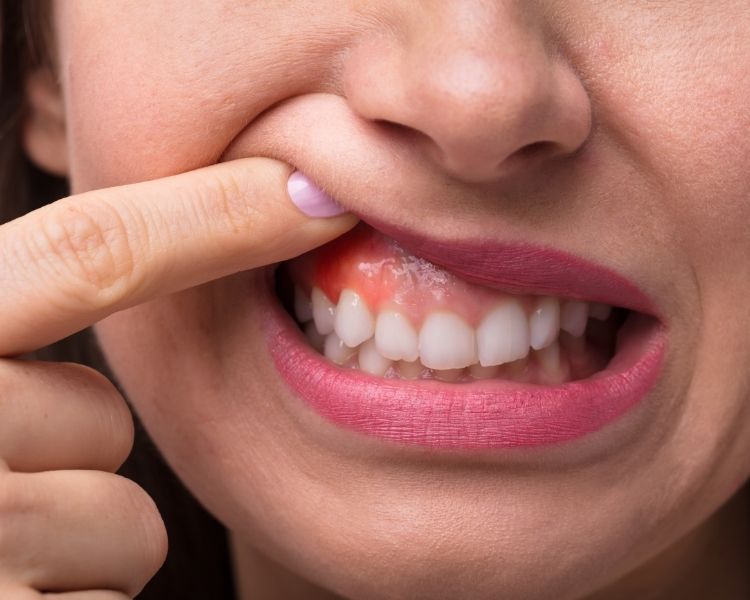
Quick Takeaways:
- Gingivitis is a mild form of gum disease that causes inflammation and irritation of the gums generally painful.
- Plaque buildup due to poor oral hygiene is the primary cause of gingivitis.
- Symptoms include red, swollen, and bleeding gums.
- Treatment involves proper oral hygiene practices and professional dental cleanings.
What is Gingivitis?
Gingivitis is a mild, early stage of gum disease that primarily affects the gums.
It’s characterized by redness, inflammation, and bleeding of the gum tissue.
Gingivitis can be easily managed and even reversed with proper oral hygiene and professional treatment. However, if left untreated, it can progress into a more severe form of gum disease known as periodontitis, which can lead to tooth loss.
Related Post: Periodontitis Guide.
Signs and Symptoms
The most common sign of gingivitis is red, swollen gums that may bleed when brushing or flossing.
Other symptoms include:
- Bad breath
- Tender or painful gums
- Receding gum line
- Changes in the color of the gums, such as a purplish hue
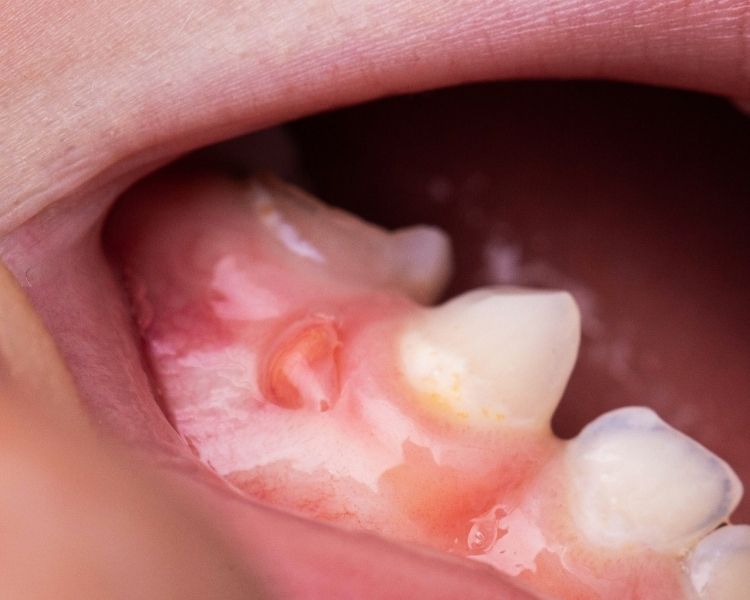
If you experience any of these symptoms, it’s essential to visit your dentist for an evaluation and treatment. Early detection is crucial in preventing gingivitis from progressing into periodontitis.
What Causes Gingivitis?
Gingivitis is primarily caused by the buildup of plaque on teeth. However, factors such as poor oral hygiene, smoking, certain medications, and underlying health conditions can contribute to its development.
Plaque is a sticky film of bacteria that forms on teeth and can harden into tartar if not removed regularly through brushing and flossing. The bacteria in plaque produce toxins that irritate the gums, leading to inflammation and infection.
How to Treat Gingivitis
The treatment for gingivitis typically involves addressing the root cause – plaque buildup.
Your dentist may recommend professional deep cleanings to remove plaque and tartar from your teeth. They may also provide guidance on improving your oral hygiene practices, such as brushing twice a day and flossing daily.
For more severe cases of gingivitis, your dentist may prescribe antibiotics or recommend special mouthwashes to help fight infection and reduce inflammation.
How to Prevent Gingivitis
Preventing gingivitis primarily revolves around maintaining excellent oral hygiene and regular dental visits. Here are some steps to help you keep your gums healthy:
- Brush Your Teeth Regularly: Brush your teeth at least twice a day, ideally after meals. Use a fluoride toothpaste and a soft-bristle toothbrush.
- Floss Daily: Flossing is an essential step in removing plaque from between your teeth and along the gum line where your toothbrush can’t reach.
- Rinse With an Antiseptic Mouthwash: This helps to kill bacteria that cause plaque and tartar.
- Visit Your Dentist Regularly: Regular dental check-ups and cleanings can help detect early signs of gingivitis.
- Avoid Smoking: Smoking is strongly linked to the onset of gum disease. If you’re a smoker, the best thing you can do for your gums and your overall health is to quit.
- Maintain a Healthy Diet: Eating a balanced diet can provide the nutrients necessary for good oral health. Limit the intake of sugary foods and drinks as they can contribute to plaque build-up.
By following these steps, you can significantly reduce your risk of developing gingivitis and ensure a healthy, strong smile.
Last Words from The More Clinics
In summary, gingivitis is a common but preventable oral health issue that occurs due to plaque buildup on teeth. Proactive measures, including regular brushing and flossing, using an antiseptic mouthwash, avoiding smoking, maintaining a healthy diet, and regular dental check-ups, can effectively prevent this disease. If detected early, professional dental cleanings and improved oral hygiene can successfully treat gingivitis, preventing its progression to more severe periodontal diseases.
At The More Clinics, your oral health is our top priority. Early detection, proper treatment, and preventive measures are essential in preserving a healthy smile. If you have further questions or need professional assistance, please don’t hesitate to reach out to us. We’re here to support you on your journey to better oral health.
GET A FREE CONSULTATION!
Let’s Start Planning Your Treatment %100 Guarantee Results.

Written by The More Editorial Team and Medically Reviewed by Mehmet Can Kılınçaslan who specialized on Periodontology and Implantology

